
Rovinj: The Jewel of the Adriatic
Rovinj, located on the western coast of the Istrian Peninsula, is one of Croatia's most enchanting destinations. This picturesque town boasts a charming mix of cobblestone streets, vibrant houses, and a beautiful harbor. The old town, perched on a small peninsula, is a maze of narrow lanes and historic buildings that will transport you back in time. One of Rovinj's highlights is the Church of St. Euphemia, which dominates the skyline. Climb to the top for panoramic views of the Adriatic Sea and the surrounding islands. The town's waterfront promenade is perfect for a leisurely stroll, lined with cafes, restaurants, and shops selling local crafts and souvenirs. Rovinj is also an excellent base for exploring the natural beauty of the Istrian Peninsula. The nearby Golden Cape Forest Park offers scenic trails and secluded beaches, ideal for hiking and swimming. For those interested in history, the town's Heritage Museum provides fascinating insights into Rovinj's rich past. Food lovers will delight in Rovinj's culinary scene, which features a blend of Italian and Croatian flavors. Don't miss the chance to sample fresh seafood at one of the many waterfront restaurants. Whether you're looking for relaxation, adventure, or cultural experiences, Rovinj has something for everyone.
Local tips in Rovinj
- Visit the Church of St. Euphemia early in the morning to avoid crowds and enjoy the best views.
- Wear comfortable shoes for walking the cobblestone streets of the old town.
- Try local specialties like truffle dishes and Istrian wine at the town's many restaurants.
- Take a boat trip to the nearby islands for a different perspective of Rovinj.
- Explore the Golden Cape Forest Park for hiking and secluded beaches.
Rovinj: The Jewel of the Adriatic
Rovinj, located on the western coast of the Istrian Peninsula, is one of Croatia's most enchanting destinations. This picturesque town boasts a charming mix of cobblestone streets, vibrant houses, and a beautiful harbor. The old town, perched on a small peninsula, is a maze of narrow lanes and historic buildings that will transport you back in time. One of Rovinj's highlights is the Church of St. Euphemia, which dominates the skyline. Climb to the top for panoramic views of the Adriatic Sea and the surrounding islands. The town's waterfront promenade is perfect for a leisurely stroll, lined with cafes, restaurants, and shops selling local crafts and souvenirs. Rovinj is also an excellent base for exploring the natural beauty of the Istrian Peninsula. The nearby Golden Cape Forest Park offers scenic trails and secluded beaches, ideal for hiking and swimming. For those interested in history, the town's Heritage Museum provides fascinating insights into Rovinj's rich past. Food lovers will delight in Rovinj's culinary scene, which features a blend of Italian and Croatian flavors. Don't miss the chance to sample fresh seafood at one of the many waterfront restaurants. Whether you're looking for relaxation, adventure, or cultural experiences, Rovinj has something for everyone.
When is the best time to go to Rovinj?
Iconic landmarks you can’t miss
Church of St. Euphemia
Discover the architectural beauty and spiritual significance of the Church of St. Euphemia, a must-visit landmark in Rovinj, Croatia.
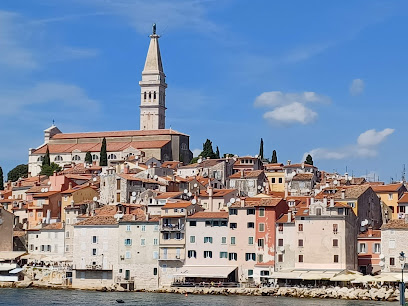
Park forest Zlatni Rt
Discover the natural beauty of Park Forest Zlatni Rt in Rovinj, a tranquil park perfect for leisurely walks, picnics, and stunning coastal views.
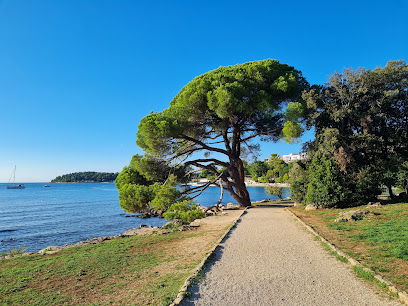
Rovinj Market
Discover the bustling Rovinj Market, where vibrant local produce, artisanal crafts, and authentic Istrian flavors converge in a picturesque coastal town.
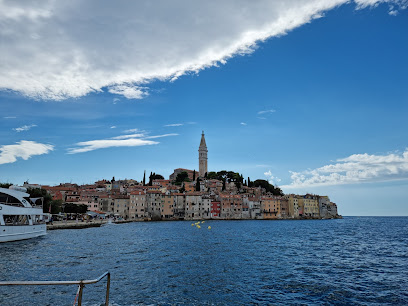
Golden Cape
Discover the breathtaking beauty of Golden Cape in Rovinj, a serene park with lush nature and stunning Adriatic views, perfect for relaxation and adventure.
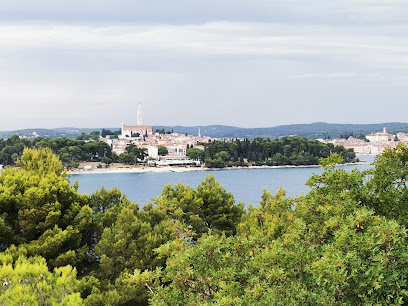
Balbi's Arch
Discover Balbi's Arch in Rovinj, a historical landmark that beautifully reflects the rich heritage and charm of this stunning Croatian coastal town.
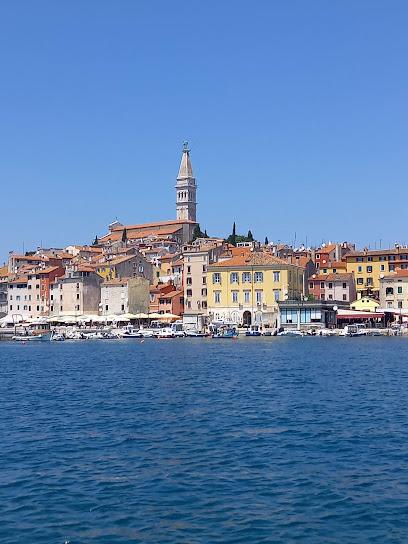
Plaža Balota
Discover Plaža Balota in Rovinj: A unique rocky beach with crystal-clear waters, perfect for sunbathing, swimming, and exploring the Adriatic coast.
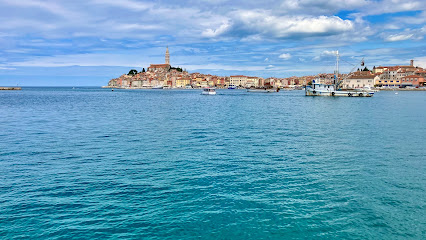
Cisterna Beach
Discover the serene beauty of Cisterna Beach in Rovinj, Croatia, where crystal-clear waters and lush landscapes create the perfect escape by the Adriatic Sea.
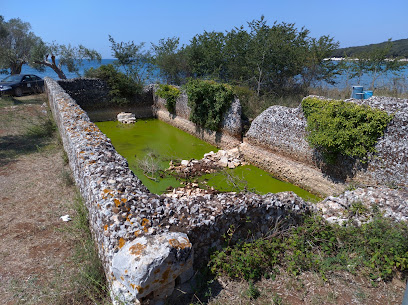
Stari Grad
Discover the enchanting beauty of Stari Grad in Rovinj, Croatia – a historical gem filled with stunning architecture and vibrant culture.
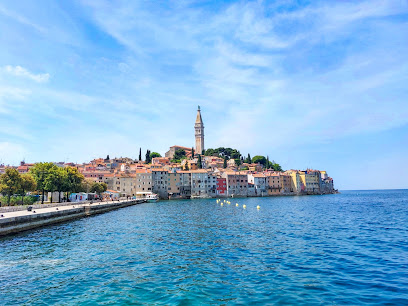
Batana Eco-Museum
Discover Rovinj's soul at the Batana Eco-Museum: a living tribute to maritime heritage, community spirit, and the iconic batana boat.
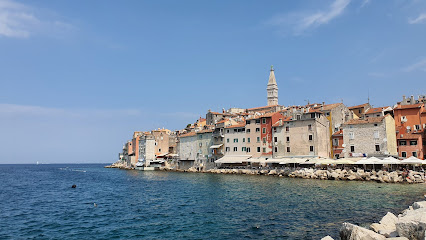
Stancija Collis
Experience the beauty of Istria at Stancija Collis, a delightful winery offering exquisite wines and serene vineyard views in Rovinj.
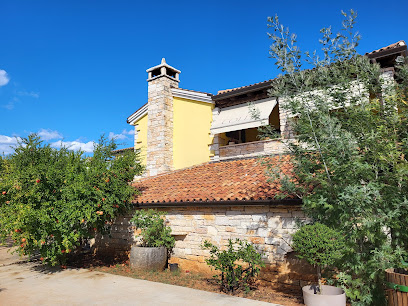
Monkodonja, gradina, arheološko nalazište
Step back in time at Monkodonja, a Bronze Age archaeological site near Rovinj, offering a glimpse into Istria's ancient past and stunning panoramic views.
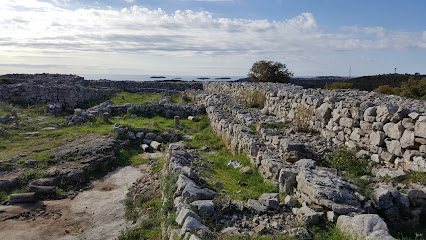
Rovinj Heritage Museum
Discover Rovinj's artistic soul and cultural treasures within the historic walls of the Heritage Museum, a beacon of Istrian heritage.
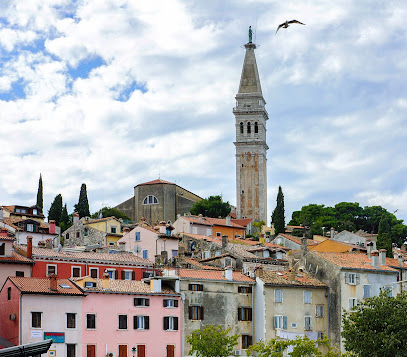
Kula Turnina
Explore Kula Turnina in Rovinj, a historic tower offering breathtaking views and a glimpse into the medieval past of this charming Croatian town.
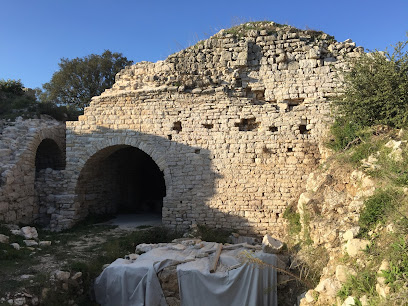
OPG Šuran Petar Rino - Rovinjska vina
Discover the taste of Istria at OPG Šuran Petar Rino, where biodynamic winemaking meets family tradition. Taste organic wines and olive oils.
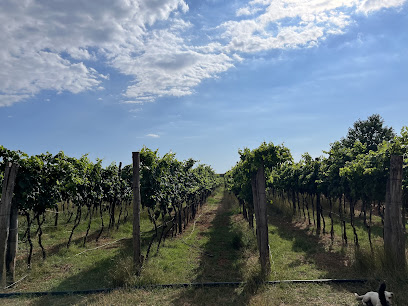
Tourist Board Rovinj-Rovigno
Explore the beauty and culture of Rovinj with guidance from the Tourist Board Rovinj-Rovigno, your gateway to Istria's finest attractions.
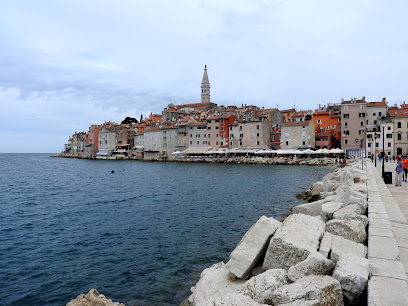
Unmissable attractions to see
Pula Arena
Experience the grandeur of the Pula Arena, a historical gem and the largest Roman amphitheater in Croatia, steeped in history and culture.
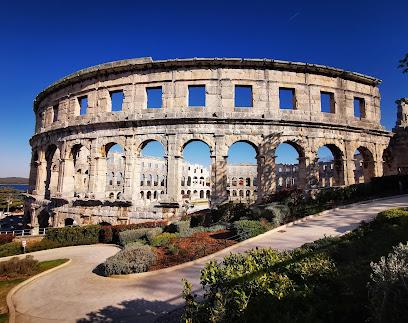
Brijuni National Park
Explore the stunning landscapes, rich history, and diverse wildlife of Brijuni National Park, a captivating Croatian gem off the Istrian coast.
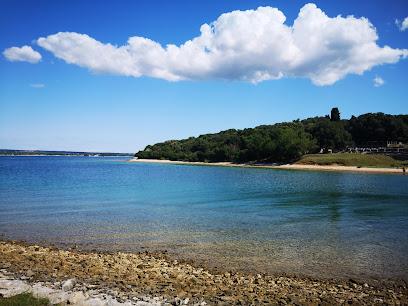
Aquarium Pula
Explore the stunning underwater world at Aquarium Pula, where marine life meets historical charm in a breathtaking coastal setting.
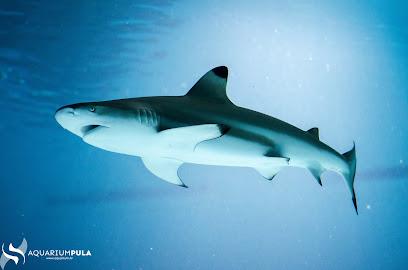
Temple of Augustus
Discover the Temple of Augustus in Pula: A breathtaking Roman landmark showcasing rich history and stunning architecture in Croatia.
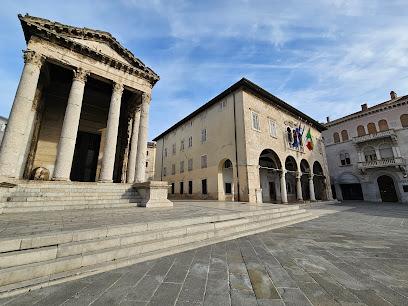
Jama - Grotta Baredine
Discover the enchanting beauty of Jama - Grotta Baredine, a captivating cave system in Nova Vas, Croatia, showcasing stunning geological formations.
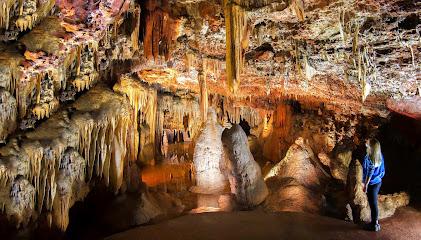
Church of St. Euphemia
Explore the stunning Church of St. Euphemia in Rovinj, a baroque masterpiece with breathtaking views and rich historical significance.
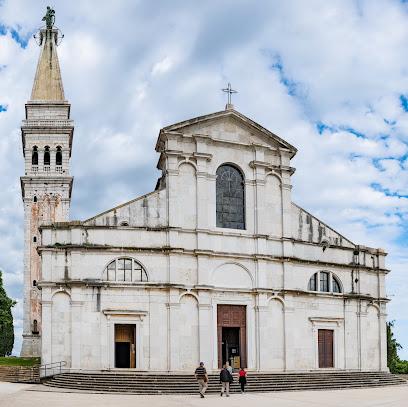
City Farmer's market Pula/Pola
Explore the City Farmer's Market in Pula for a taste of authentic Croatian flavors and local culture, all in a vibrant shopping atmosphere.
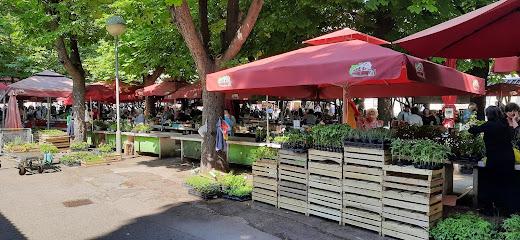
Pula Citadel
Discover the historic Pula Citadel, a stunning fortress with breathtaking views, rich heritage, and cultural experiences in the heart of Croatia.
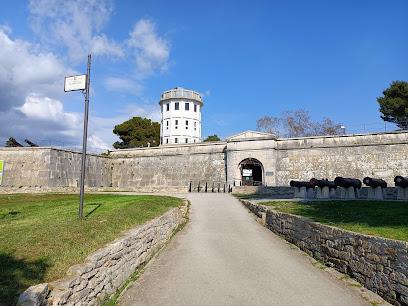
Euphrasian Basilica
Explore the Euphrasian Basilica in Poreč, a UNESCO World Heritage Site showcasing stunning mosaics and rich Byzantine architecture.
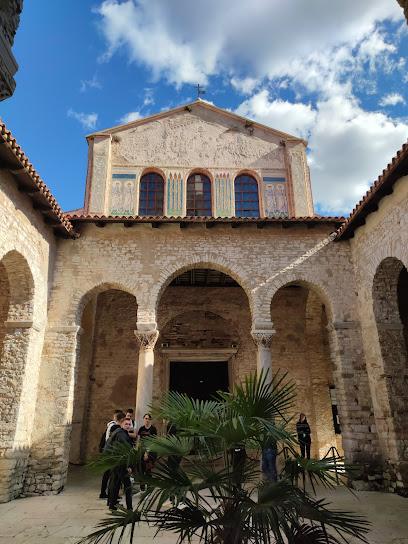
Distillery Aura
Explore Buzet's Distillery Aura for an unforgettable journey into the world of craft spirits, blending tradition with local flavors.
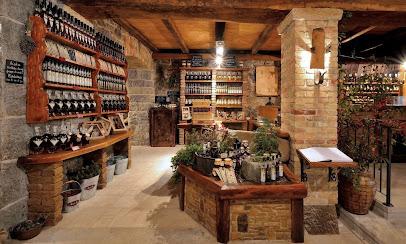
Dvigrad ruins
Discover the captivating ruins of Dvigrad, a historical landmark in Croatia that offers stunning views and a glimpse into the past.
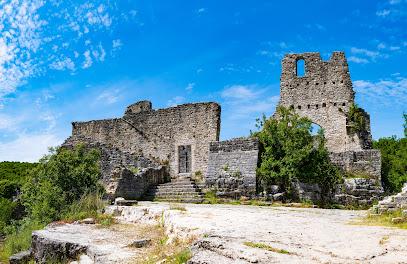
Beach Njive
Experience the tranquil beauty and vibrant marine life at Beach Njive, a breathtaking public beach in the charming village of Premantura, Croatia.
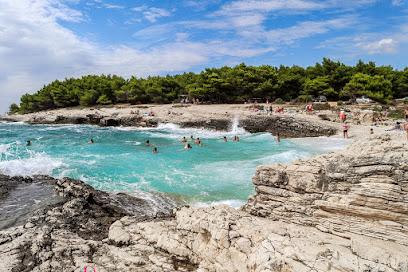
Fort Punta Christo
Explore the historic Fort Punta Christo in Pula, Croatia, where history meets stunning Adriatic views and vibrant local culture.
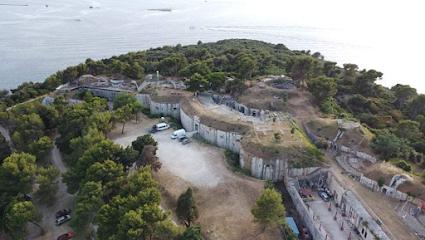
Plaža Ambrela
Experience the beauty of Plaža Ambrela, a serene beach in Pula known for its crystal-clear waters and stunning sunsets, perfect for relaxation and family fun.
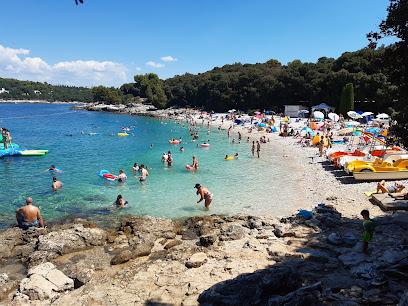
Kamenjak
Explore the stunning Kamenjak Peninsula, a natural wonder in Croatia with breathtaking views, pristine beaches, and diverse outdoor adventures.
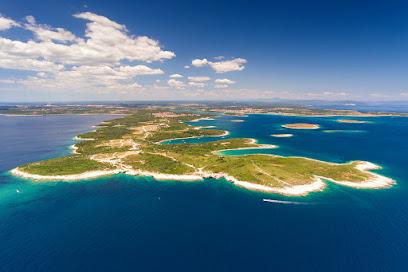
Essential places to dine
Rovinj Restaurant - La Puntulina
Discover La Puntulina in Rovinj for an unforgettable seafood dining experience with stunning Adriatic views and exquisite Mediterranean flavors.
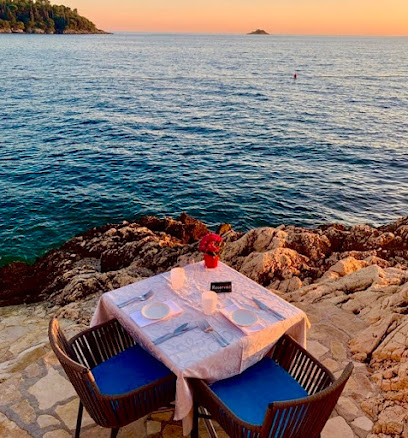
Restaurant Orca
Experience exquisite seafood dining at Restaurant Orca in Rovinj - a family-friendly gem offering fresh flavors and stunning views.
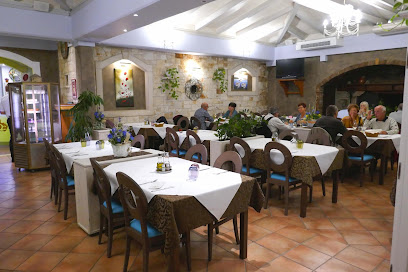
La Vela gostionica
Experience authentic Croatian cuisine at La Vela Gostionica in Rovinj - where every meal is a celebration of local flavors and hospitality.
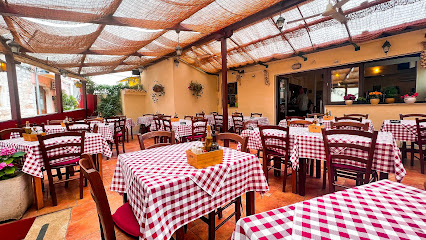
Maestral Restaurant
Discover the flavors of Croatia at Maestral Restaurant in Rovinj - where fresh seafood meets stunning sea views.
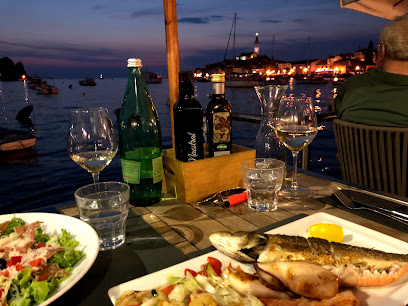
Konoba Jure
Discover the essence of Croatian gastronomy at Konoba Jure in Rovinj - where every dish tells a story.
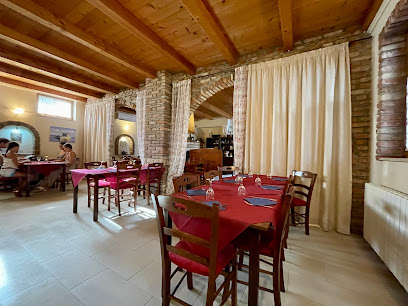
Restaurant Stella Di Mare
Experience authentic Mediterranean cuisine at Restaurant Stella Di Mare in Rovinj, where fresh seafood meets stunning sea views.
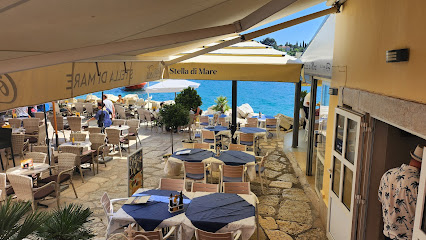
Restaurant MARINA
Discover exquisite seafood and Mediterranean delights at Restaurant MARINA in scenic Rovinj, where every meal is a celebration of flavor and view.
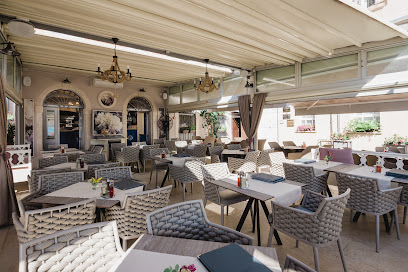
Tunaholic Fish Bar
Discover the flavors of the Adriatic at Tunaholic Fish Bar – where fresh seafood meets exceptional taste in the heart of Rovinj.
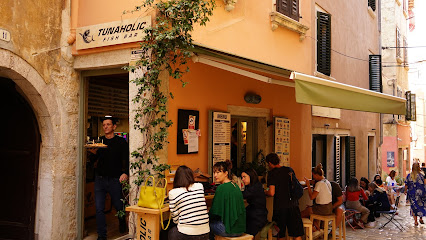
Tone
Experience culinary excellence at Tone in Rovinj - savor gourmet burgers, fresh seafood, and hearty meat dishes in an inviting atmosphere.
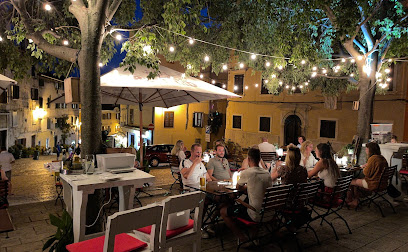
Balbi Restaurant
Experience authentic Istrian flavors at Balbi Restaurant in Rovinj - where tradition meets modern cuisine for an unforgettable dining adventure.
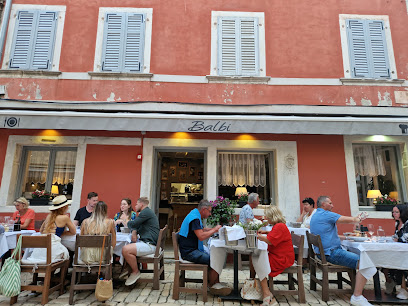
Snack bar Rio
Experience authentic Croatian flavors at Snack Bar Rio in Rovinj—where fresh seafood meets breathtaking seaside views.
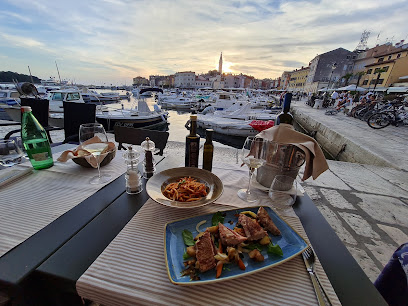
Il Faro
Experience authentic Italian cuisine at Il Faro in Rovinj, where every dish tells a story of culinary tradition amidst enchanting surroundings.
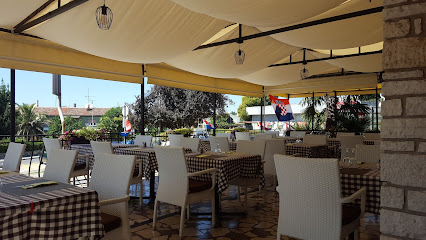
Giannino Restaurant
Experience exquisite seafood and Italian flavors at Giannino Restaurant in Rovinj—a culinary treasure on Croatia's stunning coast.
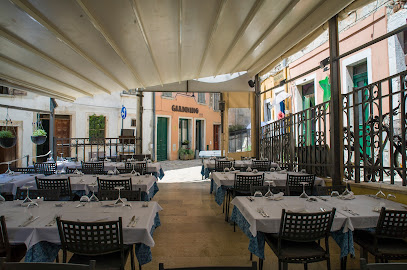
Scuba restaurant
Discover culinary excellence at Scuba Restaurant in Rovinj, where fresh seafood meets stunning Adriatic views for an unforgettable dining experience.
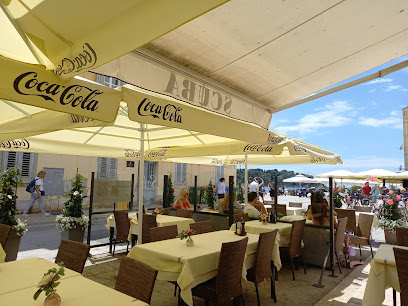
Rovinj Mali Raj
Experience authentic Mediterranean cuisine at Rovinj Mali Raj, where local flavors meet warm hospitality in beautiful Rovinj.
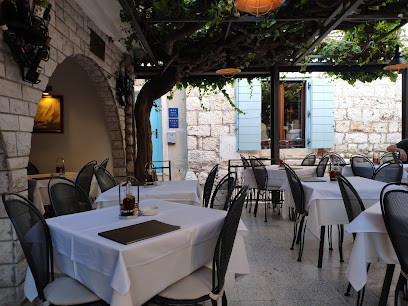
Markets, malls and hidden boutiques
Retail park Rovinj
Explore the vibrant Retail Park Rovinj, your ultimate shopping and dining destination in the heart of Croatia's stunning Rovinj.
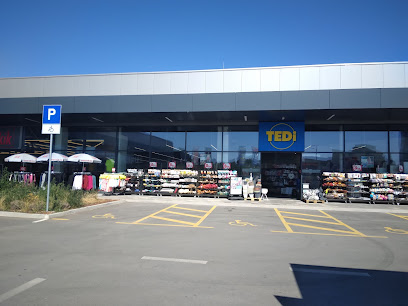
Sirena pearl store
Explore the exquisite craftsmanship of the Sirena Pearl Store in Rovinj, where stunning pearl jewelry meets Adriatic charm.
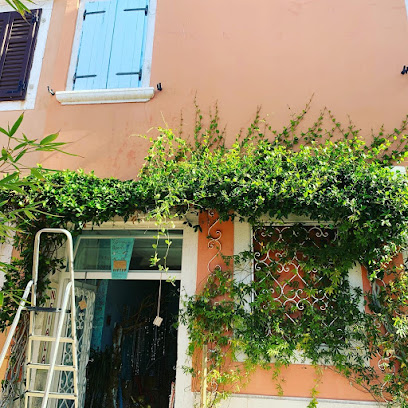
Profumo Di Rovigno
Discover the enchanting world of locally crafted perfumes and soaps in Rovinj at Profumo Di Rovigno, where every scent tells a story.
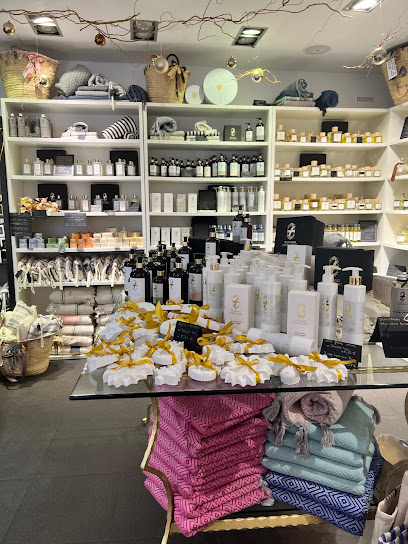
Croatis souvenir & gift shop
Explore Croatis Souvenir & Gift Shop in Rovinj for unique Croatian treasures and authentic gifts that celebrate local culture.
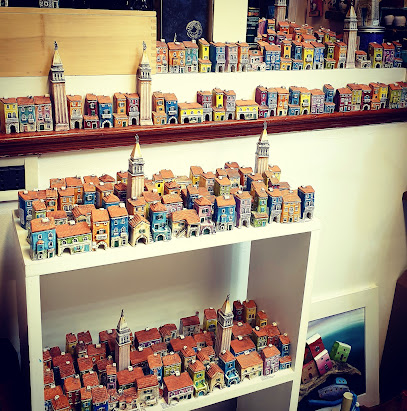
Soap Shop Kami
Explore the enchanting Soap Shop Kami in Rovinj for artisanal, handcrafted soaps that embody Croatian craftsmanship and charm.
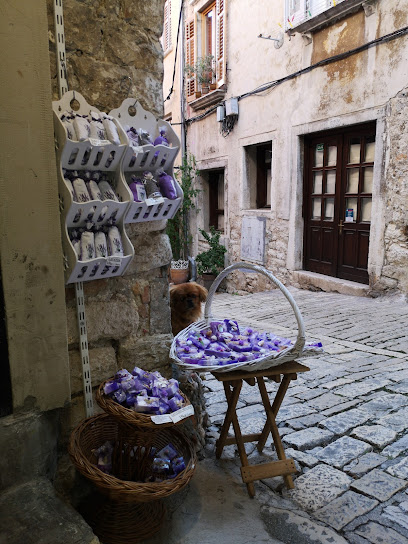
MONDO Boutique
Explore unique fashion at MONDO Boutique in Rovinj, a stylish haven for clothing lovers seeking distinctive clothing and accessories.
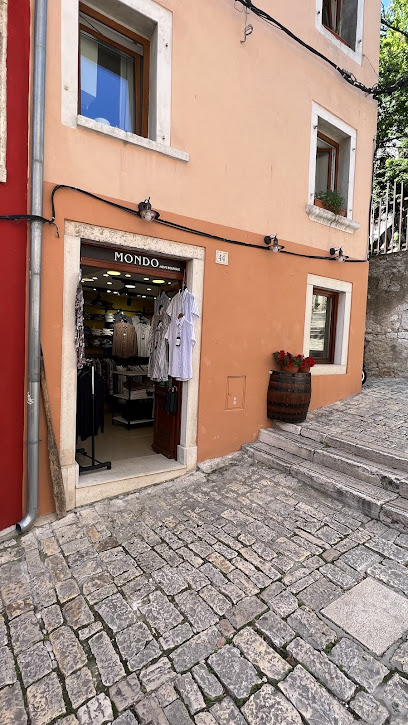
Lauritta
Explore Lauritta Boutique in Rovinj for exquisite leather bags and unique women's fashion that captures the essence of Croatian craftsmanship.
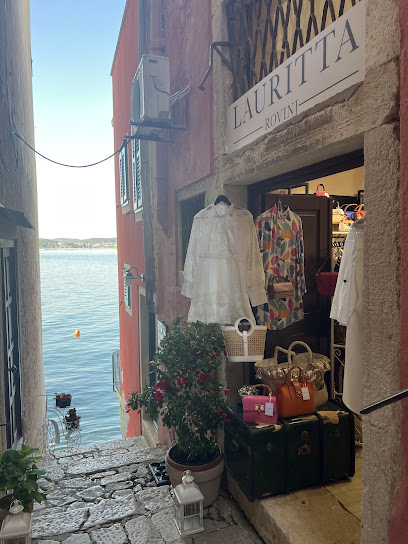
Boutique Da' Sada
Explore the chic and unique offerings at Boutique Da' Sada, a premier clothing store in Rovinj, Croatia, perfect for fashion-forward tourists.
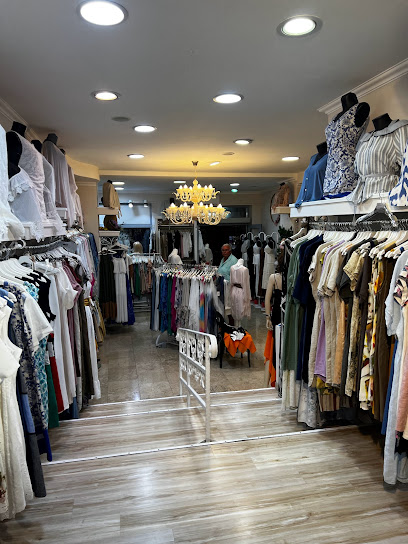
sarios d.o.o.
Explore the unique charm of Sarios d.o.o. in Rovinj, where local craftsmanship meets boutique elegance in a delightful shopping experience.
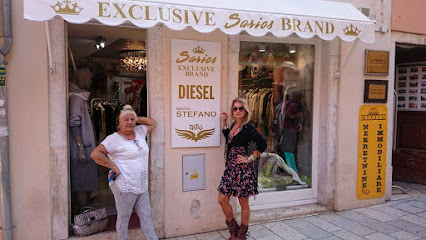
Gift shop KURA-KURA
Explore Gift Shop KURA-KURA in Rovinj for unique local crafts and souvenirs that capture the essence of Croatia's rich culture and artistry.
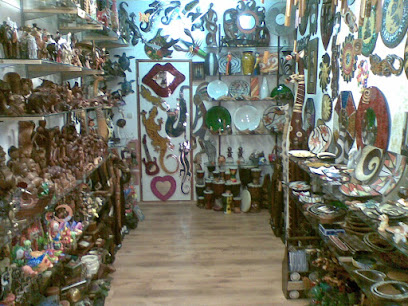
LUX
Explore LUX in Rovinj for unique souvenirs capturing the heart of Croatia – from handcrafted gifts to local delicacies, a perfect memento awaits you.
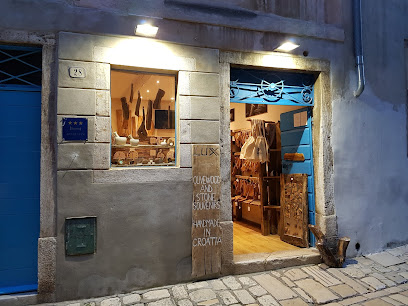
AMARE gifts & souvenirs
Discover unique souvenirs and local crafts at AMARE Gifts & Souvenirs in Rovinj, a must-visit destination for travelers seeking authentic Croatian treasures.

T.O MARIO BOUTIQUE HILFINGER
Explore T.O Mario Boutique Hilfinger in Rovinj for stylish clothing that blends contemporary trends with timeless elegance, perfect for every traveler.
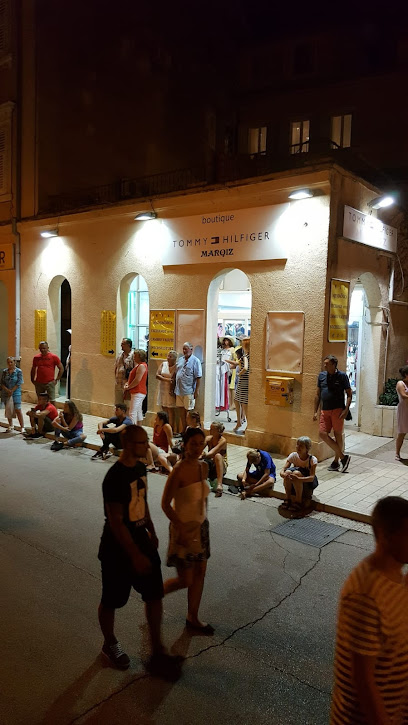
MARE E SALE SHOP - Traditional Istrian delicacies
Discover the essence of Istria at MARE E SALE SHOP, where traditional delicacies come to life in the heart of Rovinj.

Dea Orh Concept store
Explore the charm of Rovinj at Dea Orh Concept Store, where unique handcrafted items await to tell your story.
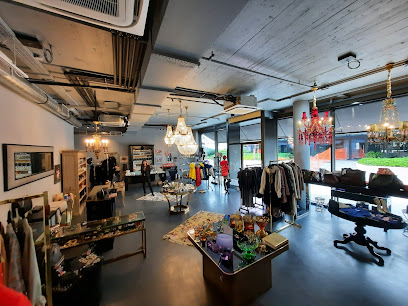
Essential bars & hidden hideouts
Mediterraneo Cocktail Bar
Experience the vibrant nightlife of Rovinj at Mediterraneo Cocktail Bar, where exquisite cocktails and a cozy atmosphere await you.
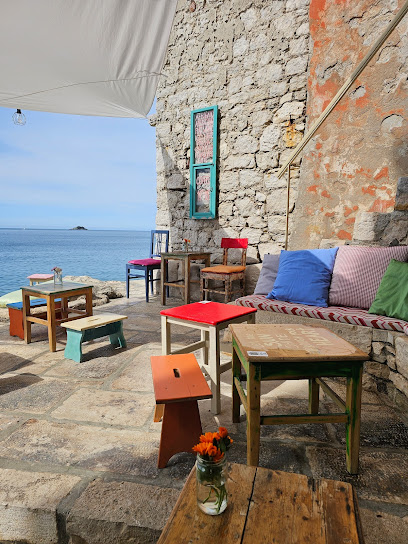
Havana Rovinj Cocktail Bar
Discover the lively Havana Rovinj Cocktail Bar, where unique cocktails and a stunning seaside view create the perfect nightlife experience in Rovinj.
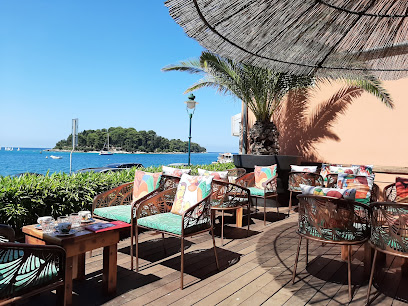
Beach Bar ComeBack
Discover the ultimate beachside retreat at Beach Bar ComeBack in Rovinj, where stunning views and refreshing drinks await every visitor.
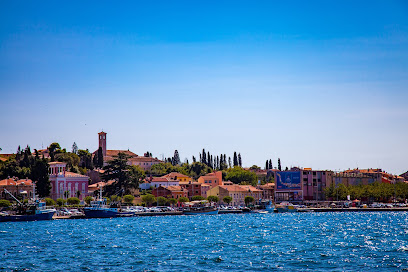
Beach Bar Rovinj
Experience the perfect blend of exquisite local cuisine and breathtaking Adriatic views at Beach Bar Rovinj, a must-visit destination in Croatia.
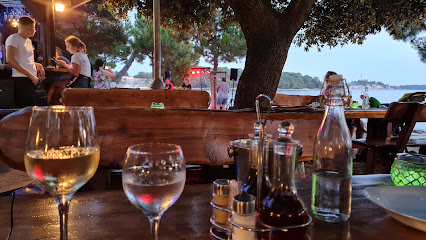
Caffe Bar XL
Discover the charm of Caffe Bar XL in Rovinj, where cozy ambiance meets a delightful selection of beverages and snacks in a picturesque setting.
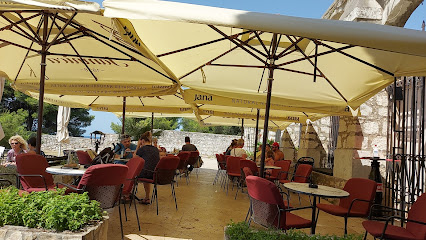
Valentino Cocktail & Champagne Bar
Discover the charm of Valentino Cocktail & Champagne Bar in Rovinj, where elegance meets exquisite drinks for an unforgettable experience.
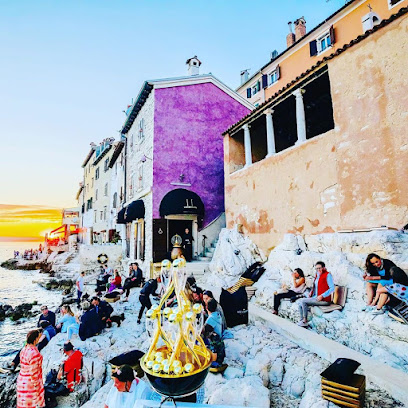
Mulini Beach Bar
Relax and unwind at Mulini Beach Bar in Rovinj, where stunning sea views meet exquisite cocktails in a serene coastal setting.
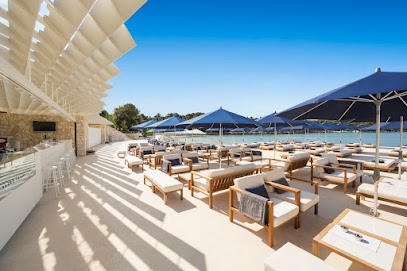
bar La'Moura
Discover the vibrant atmosphere and delightful flavors at Bar La'Moura, a must-visit spot in Rovinj for drinks and Mediterranean cuisine.
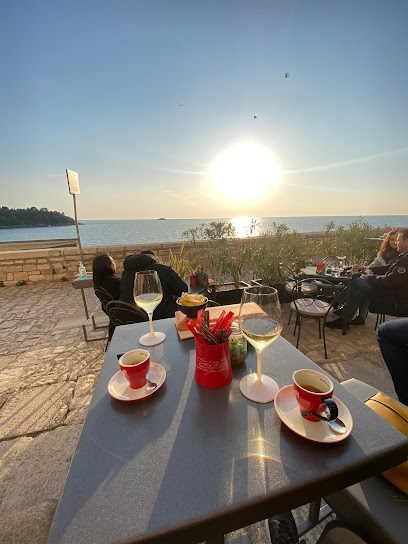
block Bar
Discover the lively atmosphere and refreshing drinks at Block Bar, a must-visit destination for tourists in Rovinj, Croatia.
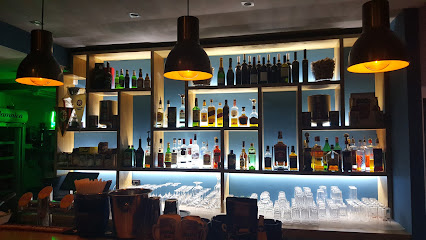
The Orange Bar
Experience the vibrant atmosphere of The Orange Bar in Rovinj, where refreshing drinks meet stunning views of the Adriatic coastline.
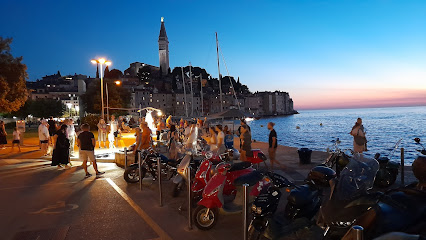
Piazzetta bar
Experience the charm of Piazzetta Bar in Rovinj, where delightful cocktails meet a cozy breakfast atmosphere, perfect for all travelers.
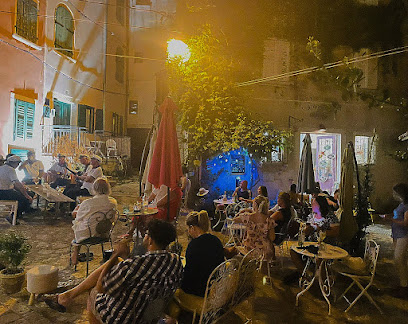
Weiße Bar
Discover the vibrant atmosphere and stunning views at Weiße Bar in Rovinj, where locals and tourists mingle over expertly crafted drinks.
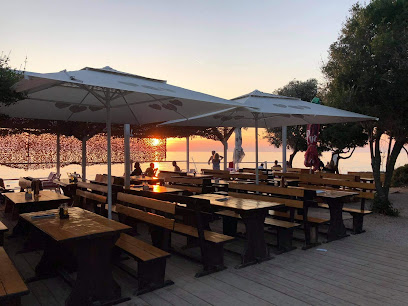
Chaka Bar
Discover the serene charm of Chaka Bar in Rovinj, where refreshing drinks and stunning coastal views unite for an unforgettable experience.
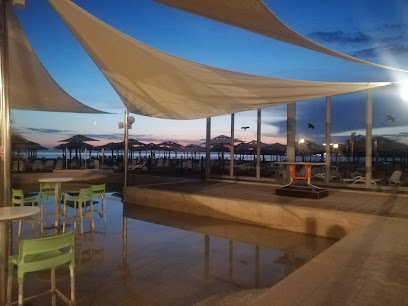
Steel Bar & Club
Steel Bar & Club in Rovinj: A pulsating nightlife hub featuring live music, dancing, and unforgettable entertainment experiences.
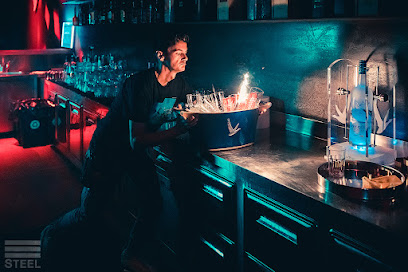
Mižol Wine & Food Bar
Experience the essence of Croatian wines and flavors at Mižol Wine & Food Bar in Rovinj, a must-visit destination for every food lover.
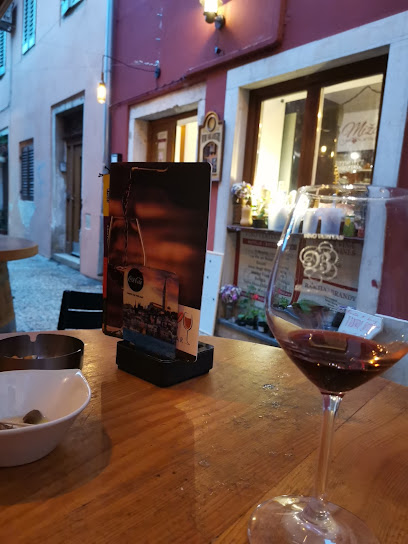
Local Phrases
-
- HelloBok
[Bohk] - GoodbyeDoviđenja
[Doh-vee-jen-ya] - YesDa
[Dah] - NoNe
[Neh] - Please/You're welcomeMolim
[Moh-leem] - Thank youHvala
[Hvah-lah] - Excuse me/SorryOprostite
[O-pros-tee-teh] - How are you?Kako si?
[Kah-koh see] - Fine. And you?Dobro. A ti?
[Doh-bro. Ah tee] - Do you speak English?Govorite li engleski?
[Go-vo-ree-teh lee eng-les-kee] - I don't understandNe razumijem
[Neh rah-zoo-mee-yem]
- HelloBok
-
- I'd like to see the menu, pleaseMogu li vidjeti jelovnik, molim?
[Moh-goo lee veed-yeh-tee yeh-lov-neek, moh-leem] - I don't eat meatNe jedem meso
[Neh yeh-dem meh-soh] - Cheers!Živjeli!
[Zhee-ve-lee] - I would like to pay, pleaseŽelio bih platiti, molim
[Zhe-lee-oh bee pla-tee-tee, moh-leem]
- I'd like to see the menu, pleaseMogu li vidjeti jelovnik, molim?
-
- Help!Pomoć!
[Poh-mohch] - Go away!Idi odavde!
[Ee-dee oh-dahv-deh] - Call the Police!Pozovite policiju!
[Poh-zoh-vee-teh po-lee-tsee-yoo] - Call a doctor!Pozovite doktora!
[Poh-zoh-vee-teh dohk-toh-rah] - I'm lostIzgubio/la sam se
[Eez-goo-bee-oh/lah sahm seh] - I'm illBolestan/sna sam
[Boh-les-tahn/snah sahm]
- Help!Pomoć!
-
- I'd like to buy...Želim kupiti...
[Zheh-leem koo-pee-tee] - I'm just lookingSamo gledam
[Sah-moh gleh-dahm] - How much is it?Koliko košta?
[Ko-lee-koh kosh-tah] - That's too expensiveTo je pre skupo
[Toh yeh preh skoo-poh] - Can you lower the price?Možete li spustiti cijenu?
[Moh-zheh-teh lee spoo-stee-tee tsee-yeh-noo]
- I'd like to buy...Želim kupiti...
-
- What time is it?Koliko je sati?
[Ko-lee-koh yeh sah-tee] - It's one o'clockJedan je sat
[Yeh-dahn yeh saht] - Half past (10)Pola (deset)
[Poh-lah (deh-set)] - MorningJutro
[Yoo-troh] - AfternoonPopodne
[Poh-pod-neh] - EveningVečer
[Veh-cher] - YesterdayJučer
[Yoo-cher] - TodayDanas
[Dah-nahs] - TomorrowSutra
[Soo-trah] - 1Jedan
[Yeh-dahn] - 2Dva
[Dvah] - 3Tri
[Tree] - 4Četiri
[Cheh-tee-ree] - 5Pet
[Peh-t] - 6Šest
[Shehst] - 7Sedam
[Seh-dahm] - 8Osam
[Oh-sahm] - 9Devet
[Deh-vet] - 10Deset
[Deh-set]
- What time is it?Koliko je sati?
-
- Where's a/the...?Gdje je...
[Gdyeh yeh] - What's the address?Koja je adresa?
[Koy-ah yeh ah-dreh-sah] - Can you show me (on the map)?Možete li mi pokazati (na karti)?
[Moh-zheh-teh lee mee poh-kah-zah-tee (nah kahr-tee)] - When's the next (bus)?Kada je sljedeći (autobus)?
[Kah-dah yeh sleh-dey-chee (ow-tow-boos)] - A ticket (to ....)Jedna karta (do ...)
[Yehd-nah kahr-tah (doh)]
- Where's a/the...?Gdje je...
History of Rovinj
-
Rovinj, originally an island, was settled as early as the Bronze Age. It became part of the Roman Empire in the 1st century BC and was known as Arupinium. The strategic location and natural harbour made it an essential port for trade and defense.
-
During the early Middle Ages, Rovinj was under the rule of the Byzantine Empire. In the 8th century, it fell under the control of the Frankish Kingdom, becoming part of the Carolingian Empire. The town was frequently attacked by pirates and other marauders during this turbulent period.
-
From 1283 to 1797, Rovinj was part of the Republic of Venice. This era significantly shaped the town’s architecture and culture. The Venetians fortified Rovinj, built sea walls, and constructed many of the town's notable buildings, including the Church of St. Euphemia. Venetian influence is still visible in the narrow, winding streets and colorful houses.
-
After the fall of the Republic of Venice in 1797, Rovinj became part of the Austrian Empire. It later became part of the Austro-Hungarian Monarchy. Under Austrian rule, Rovinj experienced economic growth and modernization. The town expanded to the mainland, and new industries such as fishing and shipbuilding flourished.
-
Following World War I, Rovinj was annexed by Italy in 1920. This period saw significant Italian influence in local governance, education, and culture. However, the interwar years were also marked by economic hardship and political strife, particularly for the Slavic population.
-
Rovinj was heavily impacted by World War II. After the war, it became part of Yugoslavia in 1947. The town underwent significant demographic changes, with many Italians emigrating and Slavic people moving in. Under Yugoslav rule, Rovinj developed as a tourist destination, leveraging its historical and natural attractions.
-
With the breakup of Yugoslavia in the early 1990s, Rovinj became part of the newly independent Croatia. Today, it is one of Croatia's most popular tourist destinations, known for its well-preserved medieval architecture, vibrant cultural scene, and stunning Adriatic coastline. The town continues to celebrate its diverse heritage through festivals, museums, and local traditions.
Rovinj Essentials
-
Rovinj is located on the western coast of the Istrian Peninsula in Croatia. The nearest international airport is Pula Airport (PUY), approximately 40 kilometers away. From Pula Airport, you can take a bus, taxi, or rent a car to reach Rovinj. Additionally, Rovinj is accessible by bus from major Croatian cities like Zagreb, Rijeka, and Split. There are also ferry connections from Venice, Italy, during the tourist season.
-
Rovinj is a compact town, and most of its attractions are within walking distance. For longer distances, local buses and taxis are available. Renting a bicycle or scooter is also a popular option for exploring the town and its surroundings. Car rentals are available, but parking can be challenging in the old town area.
-
The official currency in Croatia is the Croatian Kuna (HRK). Credit cards are widely accepted in hotels, restaurants, and shops. ATMs are readily available throughout Rovinj. It is advisable to carry some cash for smaller establishments, markets, and in case of any technical issues with card payments.
-
Rovinj is generally a safe destination for tourists. However, it is always wise to take standard precautions. Avoid walking alone in poorly lit areas at night and keep an eye on your personal belongings, especially in crowded places. There are no specific high-crime areas targeting tourists, but it is always best to stay vigilant.
-
In case of emergency, dial 112 for immediate assistance. Rovinj has a local police station and medical facilities. It is highly recommended to have travel insurance that covers medical emergencies. Pharmacies are available in the town for minor health issues and over-the-counter medications.
-
Fashion: Do dress comfortably and appropriately for the season. Avoid overly revealing clothing when visiting religious sites. Religion: Do respect local customs and traditions. Cover your shoulders and knees when entering churches. Public Transport: Do validate your bus ticket upon boarding. Don't eat or drink on public transport. Greetings: Do greet people with a friendly 'Dobar dan' (Good day). A handshake is common for formal introductions. Eating & Drinking: Do try local specialties like seafood dishes and Istrian truffles. Don't leave a tip on the table; instead, hand it directly to the server.
-
To experience Rovinj like a local, visit the local markets where you can buy fresh produce, seafood, and traditional Istrian products. Engage with the locals, who are often friendly and willing to share stories about the town's history and culture. Don't miss taking a stroll through the narrow, cobbled streets of the old town and visiting the Church of St. Euphemia for a panoramic view of Rovinj and the Adriatic Sea. For a unique experience, rent a boat and explore the nearby islands and secluded beaches.
Trending Landmark in Rovinj
-
Church of St. Euphemia
-
Park forest Zlatni Rt
-
Rovinj Market
-
Golden Cape
-
Balbi's Arch
-
Plaža Balota
-
Cisterna Beach
-
Stari Grad
-
Batana Eco-Museum
-
Stancija Collis
-
Monkodonja, gradina, arheološko nalazište
-
Rovinj Heritage Museum
-
Kula Turnina
-
OPG Šuran Petar Rino - Rovinjska vina
-
Tourist Board Rovinj-Rovigno
Nearby Cities to Rovinj
-
Things To Do in Pula
-
Things To Do in Portorož
-
Things To Do in Piran
-
Things To Do in Izola
-
Things To Do in Koper
-
Things To Do in Opatija
-
Things To Do in Trieste
-
Things To Do in Sežana
-
Things To Do in Postojna
-
Things To Do in Nova Gorica
-
Things To Do in Venice
-
Things To Do in Ljubljana
-
Things To Do in Škofja Loka
-
Things To Do in Bohinj
-
Things To Do in Ravenna










